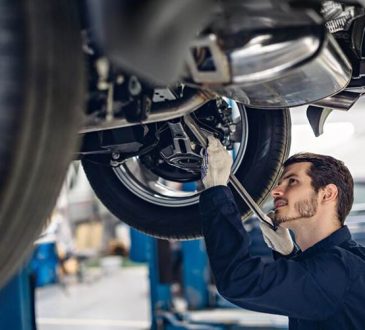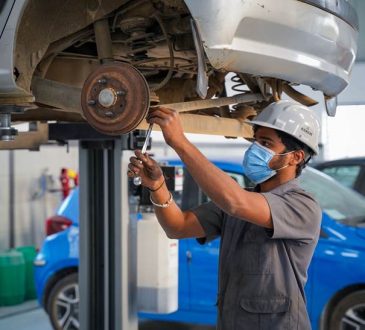Why Diesel Vehicles Still Hold Their Ground in the UK Market in 2025

For years, the automotive industry has been shifting towards electric and hybrid technology, with petrol engines also holding a significant share. Yet, despite increasing environmental regulations, diesel vehicles remain a strong contender in the UK market in 2025. While some predicted their decline, the reality is that diesel still offers distinct advantages for certain drivers and industries. This article explores why diesel vehicles remain relevant and how proper maintenance — including DPF cleaning and catalytic converter replacement — keeps them running efficiently.
1. Diesel Efficiency: Perfect for Long-Distance Driving
Diesel vehicles are favoured in the UK for their fuel efficiency, especially on highways where they can travel more miles per gallon than petrol cars.
- Regularly commute long distances
- Operate in rural areas where fuel stations may be sparse
- Need a vehicle for towing or heavy loads
In 2025, rising fuel prices make this efficiency even more valuable. Diesel vehicles consume less fuel to cover the same distance, which translates to long-term cost savings.
2. Superior Torque for Work and Towing
Diesel engines are designed to provide higher torque at lower RPMs. This is a key advantage for industries that rely on vans, trucks, and SUVs to transport goods or tow heavy trailers. In the UK, where farming, construction, and delivery sectors are vital, diesel-powered vehicles are still the workhorses of choice.
Even with electric trucks entering the market, charging times, infrastructure limitations, and initial costs remain hurdles for many businesses. Diesel engines, on the other hand, offer reliability and immediate refuelling — essential for industries where downtime can mean lost income.
3. Longevity and Durability
Another reason diesel vehicles remain popular is their engine lifespan. Diesel engines are built to withstand higher compression and heavy workloads, which means they often last significantly longer than petrol engines when properly maintained.
This durability is particularly appealing for:
- Fleet operators aiming to maximise investment in each vehicle
- Drivers in remote or rural locations who need dependable transportation
- Second-hand buyers looking for value
Regular servicing, including DPF cleaning and timely catalytic converter replacement, plays a big role in preserving this longevity.
4. The Role of DPF Cleaning in Performance and Compliance
Since 2009, most diesel vehicles in the UK have been fitted with a Diesel Particulate Filter (DPF) to capture harmful soot particles. Over time, these filters can become clogged, leading to reduced performance, increased fuel consumption, and even engine damage.
Professional DPF cleaning restores the filter’s efficiency, helping vehicles meet emissions standards while maintaining engine performance. In 2025, with stricter MOT requirements and Low Emission Zone (LEZ) enforcement, keeping your DPF clean isn’t just good for your vehicle — it’s a legal necessity.
5. Catalytic Converter Replacement for Cleaner Emissions
Alongside DPF maintenance, catalytic converter replacement remains an essential service for diesel vehicles. The catalytic converter helps reduce harmful gases such as nitrogen oxides, carbon monoxide, and hydrocarbons before they leave the exhaust.
When a catalytic converter becomes worn or damaged, emissions rise, performance drops, and MOT failure becomes a real risk. By replacing it in a timely manner, diesel owners ensure their vehicles remain compliant with UK environmental laws while continuing to enjoy the efficiency and torque advantages diesel provides.
6. The Economics of Diesel Ownership in 2025
Critics often point to the higher upfront cost of diesel vehicles, but in many real-world scenarios, they still offer better long-term value. For high-mileage drivers, the savings in fuel costs often outweigh the purchase price difference. Additionally:
- Diesel vehicles tend to hold their value better in the used market, especially larger models
- Reduced fuel consumption means fewer stops and lower running costs
- Well-maintained diesel engines can outlast their petrol counterparts, delaying the cost of replacement
With regular DPF cleaning and catalytic converter replacement, owners can avoid expensive repairs and keep running costs predictable.
7. Why Diesel Still Has a Future in the UK
While electric vehicles are gaining traction, they are not yet a one-size-fits-all solution. The UK’s charging infrastructure, battery range limitations, and higher purchase prices still present challenges — particularly for rural drivers, long-haul transporters, and heavy-duty vehicle operators.
Diesel, in contrast, offers:
- Quick refuelling
- Proven durability in demanding conditions
- Better efficiency under heavy loads and long trips
While government policies in 2025 are likely to continue promoting cleaner alternatives, advancements in diesel technology are leading to newer models with reduced emissions that comply with stricter environmental regulations.
Conclusion
Diesel vehicles continue to play a vital role in the UK automotive market in 2025. For high-mileage drivers, heavy-duty operators, and those needing reliable long-distance performance, diesel remains a smart choice. With proper upkeep — especially DPF cleaning and catalytic converter replacement — these vehicles can deliver exceptional performance, fuel economy, and compliance with emissions laws for years to come.
Far from being obsolete, diesel technology is adapting, and for many UK motorists, it still offers the best balance of power, efficiency, and cost-effectiveness.









